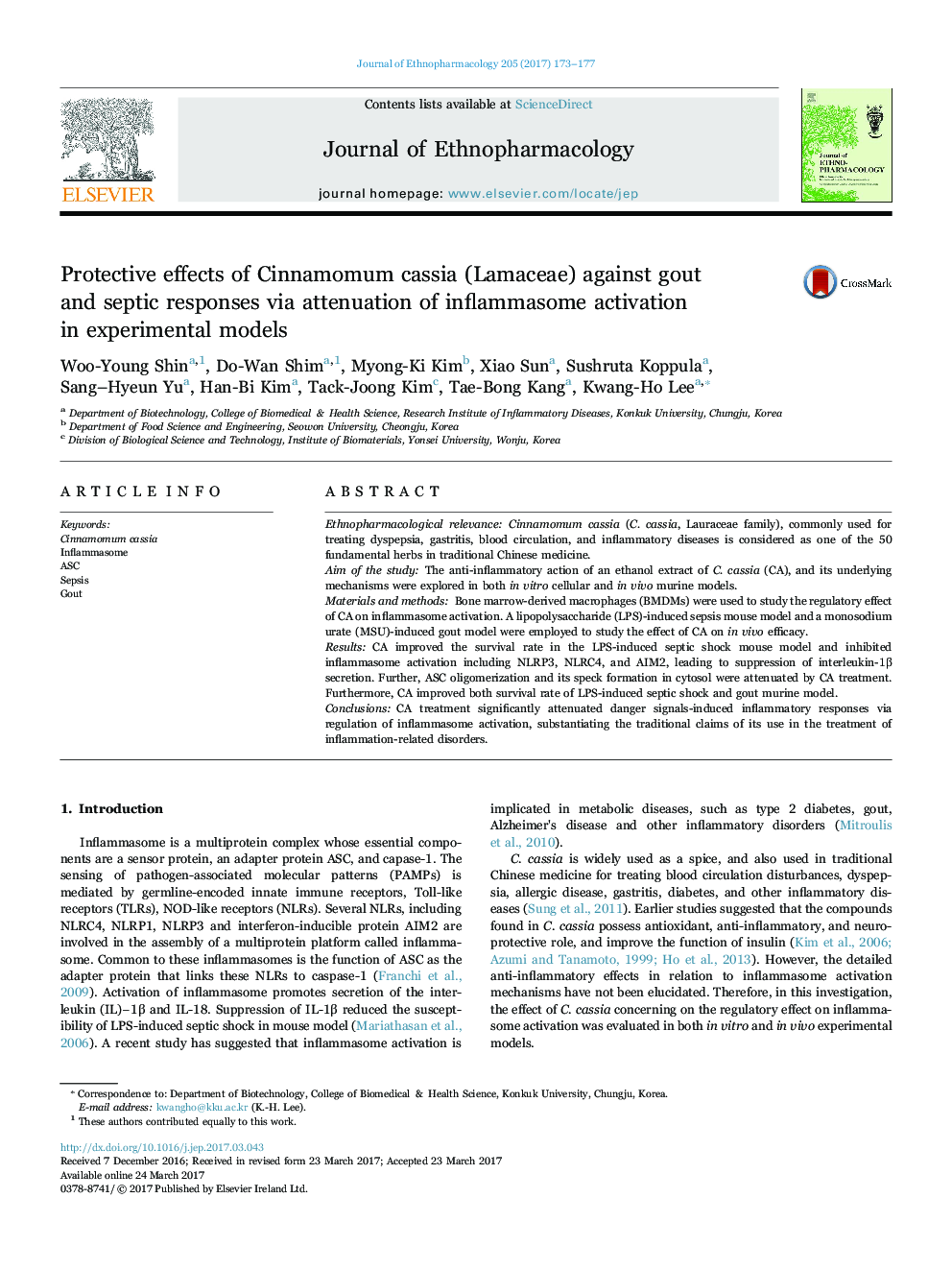| Article ID | Journal | Published Year | Pages | File Type |
|---|---|---|---|---|
| 5556090 | Journal of Ethnopharmacology | 2017 | 5 Pages |
Ethnopharmacological relevanceCinnamomum cassia (C. cassia, Lauraceae family), commonly used for treating dyspepsia, gastritis, blood circulation, and inflammatory diseases is considered as one of the 50 fundamental herbs in traditional Chinese medicine.Aim of the studyThe anti-inflammatory action of an ethanol extract of C. cassia (CA), and its underlying mechanisms were explored in both in vitro cellular and in vivo murine models.Materials and methodsBone marrow-derived macrophages (BMDMs) were used to study the regulatory effect of CA on inflammasome activation. A lipopolysaccharide (LPS)-induced sepsis mouse model and a monosodium urate (MSU)-induced gout model were employed to study the effect of CA on in vivo efficacy.ResultsCA improved the survival rate in the LPS-induced septic shock mouse model and inhibited inflammasome activation including NLRP3, NLRC4, and AIM2, leading to suppression of interleukin-1β secretion. Further, ASC oligomerization and its speck formation in cytosol were attenuated by CA treatment. Furthermore, CA improved both survival rate of LPS-induced septic shock and gout murine model.ConclusionsCA treatment significantly attenuated danger signals-induced inflammatory responses via regulation of inflammasome activation, substantiating the traditional claims of its use in the treatment of inflammation-related disorders.
Graphical abstractDownload high-res image (150KB)Download full-size image
